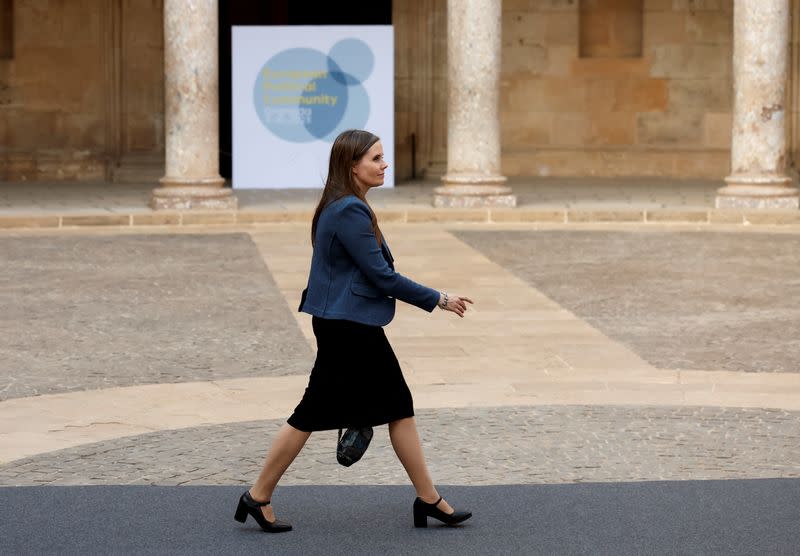Icelandic women, including PM, strike for 24 hours over inequality

By Sigurdur, Davidsson and Johannes Birkebaek
REYKJAVIK (Reuters) -Tens of thousands of Icelandic women went on a 24-hour strike on Tuesday over gender inequality, including the prime minister, who said the fight for equal treatment was moving far too slowly at home and abroad.
Across the small island nation, schools and libraries were closed or operated on limited hours as female staff stayed home, while hospitals said they would only handle emergency cases.
Joining the protest, Prime Minister Katrin Jakobsdottir, 47, said she would not come to work on Tuesday.
"Looking at the whole world, it could take 300 years to achieve gender equality," Jakobsdottir told the Ras 1 public radio station.
The strike was called to protest gaps in pay compared to men and gender-based violence, as well as to highlight unpaid work such as childcare that often falls on women, organisers said.
Organised under the slogan "Do you call this equality?" and comprising Icelandic women and non-binary individuals, the protest is the first full-day strike since an inaugural women's event nearly half a century ago. In 1975, 90% of Icelandic women stopped work to protest gender inequality.
"We are celebrating ... our foremothers, our role models for equality," said Thorgerdur Katrin Gunnarsdottir, 58, an Icelandic lawmaker. "We need equality, we need justice, we need freedom, so this is a message here from Iceland, we have to stand together."
With a population of less than 400,000, Iceland is regarded as one of the world's most progressive countries in terms of gender equality and has topped the World Economic Forum's gender gap index 14 years in a row.
But in some industries and professions, women earn at least 20% less than Icelandic men, according to Statistics Iceland.
"This day is for all women in Iceland," said Sonja Rut Adalsteinsdottir, 41, who works at a company making equipment for the food industry.
"I am lucky that I am working at a company that has equal pay, both for women and men, but I am here for my daughters, and for all other women in this country," she said during a rally in the capital Reykjavik.
Local media reported some 70,000-100,000 people attending.
Forty percent of Icelandic women experience gender-based and sexual violence in their lifetime, a University of Iceland study found.
"We're seeking to bring attention to the fact that we're called an equality paradise, but there are still gender disparities and urgent need for action," said Freyja Steingrimsdottir, a strike organiser and the communications director for the Icelandic Federation for Public Workers.
"Female-led professions such as healthcare services and childcare are still undervalued and much lower paid," Steingrimsdottir told Reuters on Monday.
(Additional reporting by Terje Solsvik, editing by Gwladys Fouche, Sharon Singleton, Justyna Pawlak and Rod Nickel)

 Yahoo News
Yahoo News 
